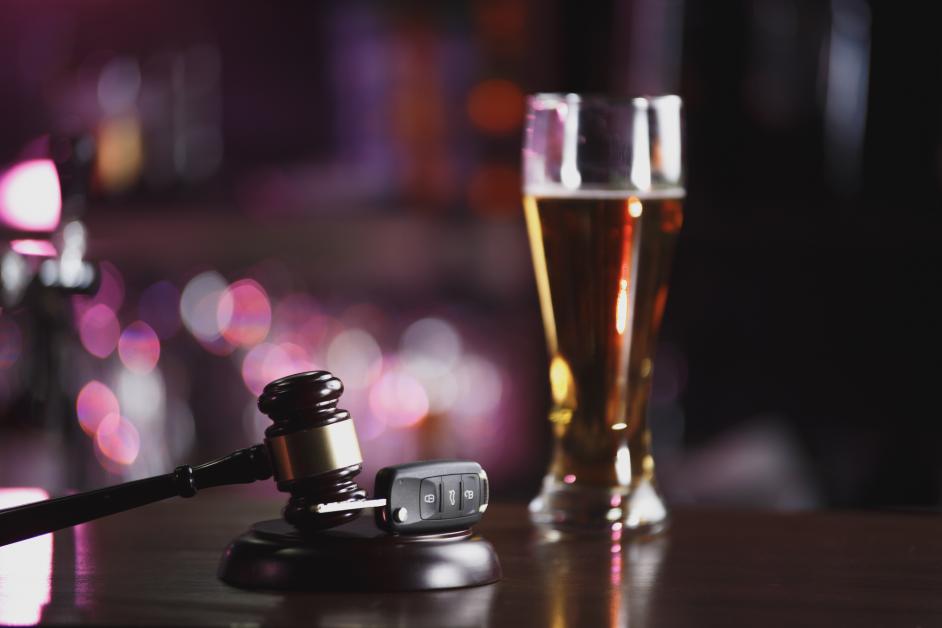Things about Houston Criminal Defense Lawyer
Table of ContentsNot known Incorrect Statements About Houston Criminal Lawyer The Only Guide to Houston Criminal Defense LawyerExamine This Report about Houston Criminal LawyerTop Guidelines Of Houston Dwi Attorney
The suspect is typically not offered Miranda cautions at this time since the experience legally has not gone from "investigatory" to "accusatory", and also because the police desire the suspect to think the concerns are not being made to collect "probable cause" proof. At this moment, the suspect is not needed to give greater than identification as well as lorry details.
Recorded test results, such as - Initial breath test (PBT) proof - Pseudo-scientific test arises from field soberness tests Authorities provide a one-leg-stand test after a collision. Among one of the most controversial facets of a DRUNK DRIVING stop is the area soberness examination (FSTs) - Houston Criminal Lawyer. The National Freeway Traffic Security Management (NHTSA) has established a version system for taking care of Standardized Field Soberness Examination (SFST) training.

As a result of the NHTSA research studies, the walk-and-turn examination was established to be 68% accurate, as well as the one-leg stand examination is only 65% exact when provided to individuals within the study parameters. The tests were not validated for individuals with clinical problems, injuries, 65 years or older, and 50 pounds or greater overweight.
FSTs are taken into consideration "split attention examinations" that test the suspect's capacity to perform the sort of mental and physical multitasking that is needed to operate an auto. Houston DWI Attorney. However, these examinations can be problematic for people with non-obvious handicaps affecting proprioception (the understanding of the body's motion), such as Ehlers-Danlos syndrome.
Some Known Details About Houston Criminal Lawyer
The Walk-and-Turn Test (heel-to-toe in a straight line). This test is created to determine a person's capability to comply with directions and bear in mind a collection of actions while separating attention in between physical and mental jobs. The One-Leg-Stand Examination According to NHTSA, these tests were not developed to measure disability, yet instead to give a possibility that a vehicle driver goes to or over a 0.08% BAC.
In 1991, Dr. Spurgeon Cole of Clemson College performed a study of the accuracy of FSTs. His staff videotaped individuals carrying out six usual area sobriety tests, after that revealed the tapes to 14 law enforcement agents and asked them to choose whether the suspects had "had way too much to drink and drive" (sic).
The result: the officers provided their opinion that 46% of these innocent individuals were also drunk to be able to drive. This research showed the feasible inaccuracy of FSTs. Alternate tests, which have not been medically confirmed, consist of: Romberg description test, or the Modified-Position-of-Attention Test, (feet together, head back, eyes closed for thirty secs).

The Alphabet Examination (recite all or part of the alphabet). The Finger Count Test (touch each finger of hand to thumb counting with each touch (1, 2, 3, 4, 4, 3, 2, 1)). The Counting Test (checking backwards from a number finishing in a number apart from 5 or 0 and stopping at a number ending apart from 5 or 0.
The Buzz on Houston Criminal Lawyer
The Preliminary Alcohol Screening Test, PAS Test or PBT, (infuse a "mobile or preliminary breath tester", PAS Test or PBT). FSTs as well as SFSTs are advertised as, "used to establish whether a subject suffers", yet FST examinations are commonly pertained to having, as their main function, establishing tangible evidence of "possible reason for arrest".
An additional purpose is to supply sustaining corroborative concrete proof for usage against the suspect for use at trial in territories that allow such proof. In all United States territories, involvement in a Area Sobriety Examination is voluntary, and not required under indicated approval laws. (Authorities are not required to suggest the suspect that involvement in a FST or various other pre-arrest treatments is voluntary.
An increasingly utilized area sobriety examination includes having the suspicious breathe into a little, handheld breath testing gadget. These are usually referred to as Examinations, or "Initial Alcohol Screening" Tests", or a PBT, "Preliminary Breath Test" as well as come before the real apprehension and also succeeding demand to send to an evidentiary chemical examination of the suspect's breath or blood.
An enhancing number territories began using Portable Evidentiary Breath Examination tools, or PEBT gadgets, that are much more advanced variations of the smaller, cost-effective variations of the larger, larger instruments at the authorities stations. An additional distinction is that, while the bigger EBTs usually employ infrared spectroscopy, the PEBT as well as PAS tools utilize a reasonably basic electrochemical (fuel cell) technology.
Getting The Houston Criminal Defense Lawyer To Work
The Preliminary Breath Examination (PBT) or Initial Alcohol Screening examination (PAS) is occasionally categorised as part of field sobriety screening, although it is not part of the collection of performance examinations. The PBT (or PAS) uses a mobile breath tester. While the click here for info tester offers mathematical blood alcohol web content (BAC) analyses, its primary usage is for screening as well as developing potential cause for apprehension, to conjure up the indicated authorization demands.

Despite the terminology, in order to suffer a conviction based upon symptomatic tests, probable reason should be revealed (or the suspect has to volunteer to take the indicatory examination without implied approval demands being invoked). Authorities are not obliged to recommend the suspect that involvement in a FST or various other pre-arrest procedures is volunteer.
Rejection to take a preliminary breath examination (PBT) in Michigan subjects a non-commercial vehicle driver to a "civil offense" penalty, without any offense "points", yet is ruled out to be a refusal under the general "implied authorization" legislation. In some states, the state might present proof of refusal to take a field sobriety test in court, although this is of suspicious probative worth in an intoxicated driving prosecution.
Some US states, especially California, have laws on guides penalizing PBT refusal for vehicle drivers under 21; nonetheless the Constitutionality of those laws has not been tested. (As a practical matter, many criminal legal representatives suggest not participating in conversation or "justifying" a refusal with the cops - Houston Criminal Defense Attorney.) If the officer has adequate possible cause that the suspect has actually been driving intoxicated of alcohol, they will certainly make the arrest, handcuff the suspect and also transfer them to find more information the police terminal.